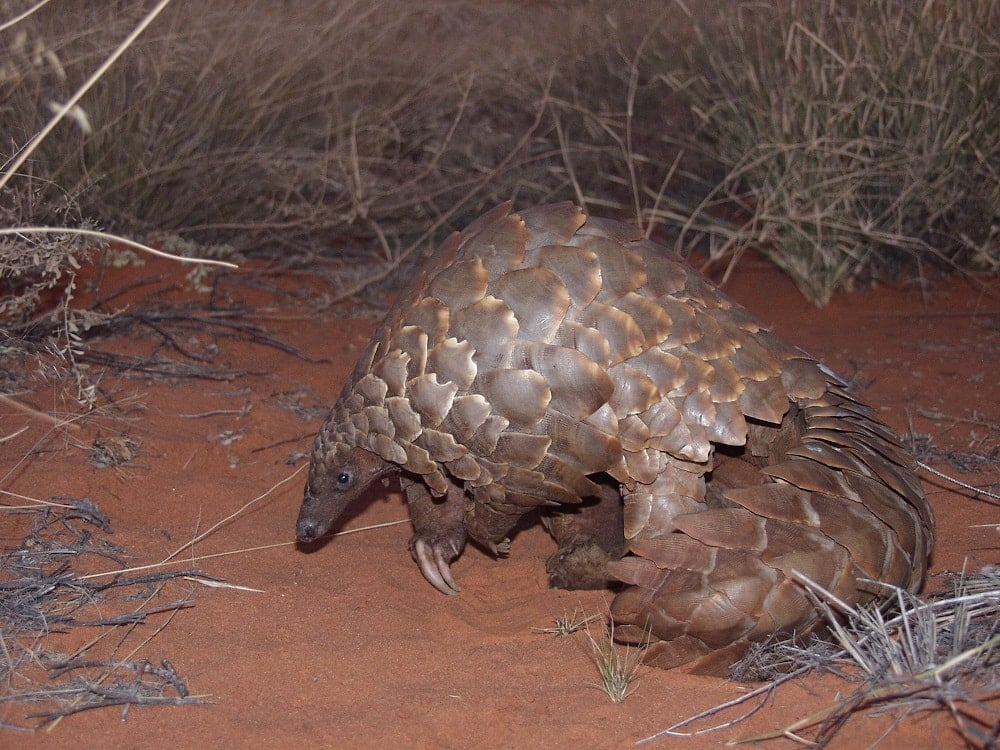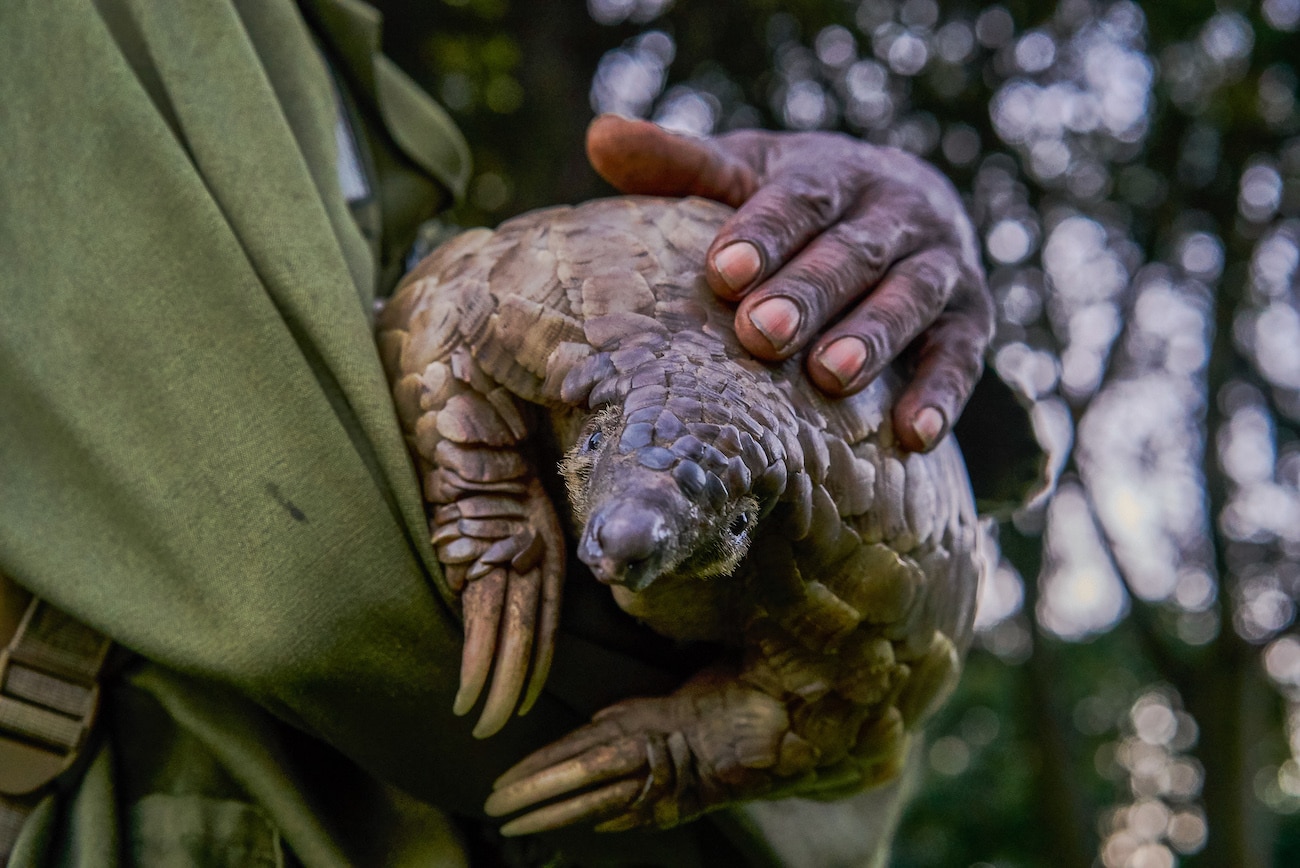As the most illegally trafficked mammals, pangolins are at risk of extinction. The high demand comes from China and Vietnam, where their scales and almost all of their body parts are sought for traditional medicines and food. This, combined with habitat loss, is causing pangolins to vanish at an alarming rate.
There are many strategies to combat threats to pangolins. The Pangolin Crisis Fund (PCF) supports initiatives that protect pangolin habitats, disrupt the illegal wildlife trade, and eliminate the demand for their scales and meat. However, there is a new appeal that has also emerged as a way to protect pangolins.
In some local communities, pangolins are regarded as legendary or mythical creatures due to their elusive nature. “To us a pangolin is more than just an animal; it is part of our culture,” says Christopher Zimunya, leader of the VaJindwi, an Indigenous community in eastern Zimbabwe.
In Zimunya’s community, pangolins are seen as good luck, and harming a pangolin will bring bad luck upon any transgressors. Many years ago, VaJindwi traditions required people to hand over any pangolins to the chief, who would then release them back to the wild. With support from the government, traditional leaders like Christopher Zimunya are reviving these age-old myths and traditions about pangolins to aid in their conservation. These practices are filling the education gap about pangolins and deterring poaching.
The mere nature of these myths, like that pangolins bring good luck, inherently discourages people from targeting them. In fact, the notion of killing or selling a pangolin is so unthinkable to some cultures that it is equated to a taboo. “We teach our children to value the pangolin and never to kill or sell it,” Zimunya states.
The fact that the pangolin is so interwoven within VaJindwi culture, the emphasis on preserving pangolins cannot easily be ignored. Not only is it almost impossible to sell a pangolin amongst the VaJindwi people, it is equally difficult to recruit any locals in wildlife crime because of how revered and respected the animal is amongst their community.
These traditional conservation methods are drawing the attention of conservation groups like the Tikki Hywood Foundation (THF), a PCF grantee. THF has appropriately identified this as an opportunity to boost their pangolin conservation efforts in Zimbabwe. They are working directly with local leaders like Zimunya, local authorities, and judiciary and council officials to bolster pangolin conservation across the country. Because of these collaborations, pangolin conservation is on a positive track in Zimbabwe.
A representative for the Zimbabwe Parks and Wildlife Management Authority has lauded the significant role that local chiefs are playing in educating people on the importance of protecting pangolins. Their teachings are resonating with these communities not just because of scientific or ethical reasons, but because of the cultural significance that pangolins represent. With continued commitment to protecting pangolins, local people can prevent pangolins from going extinct and truly stepping into the realm of myth.



